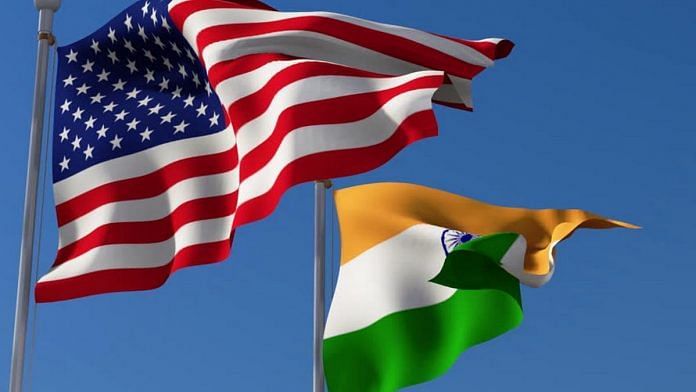New Delhi: The United States has asked India to do away with arbitrary price controls on “high-end and premium medical devices” even as the Indian healthcare lobbies are against such a move, which might take shape under the proposed US-India trade deal, ThePrint has learnt.
According to sources involved in the talks, the American medical devices industry has been asking India to do away with price caps on all medical devices ever since Prime Minister Narendra Modi visited the US in September last year. The trade deal fell through at the time as India did not agree to the proposal.
However, it now seems both sides have come to a consensus to replace price caps on medical devices with that of regulation on trade margins, multiple sources told ThePrint. They also said trade margin rationalisation won’t be applicable on all US-made devices but only on high-end and premium products.
The matter was finalised during a phone call between Commerce and Industry Minister Piyush Goyal and US Trade Representative Robert Lighthizer earlier this week, the sources said.
The trade margin is the difference between the price at which manufacturers or importers sell to trade (price to trade) and the price to patients (maximum retail price).
“Trade margin rationalisation (TMR) is the best approach instead of arbitrary price controls. This can be done at least on the innovative and high-end coronary stents and knee implants. TMR will not disturb or jeopardise the domestic industry in any way because the TMR will be applicable only on high-end and premium products as far as coronary stents and knee implants are concerned,” said a source.
But how the TMR will be arrived at remains a major stumbling block, the sources added.
This is because it will not be a profitable proposition for the American medical devices industry if the margins are slim.
However, one of the sources said India and the US have come to the conclusion that “TMR will be regulated at the first point of sale”.
On the other hand, the domestic industry is keen to have the TMR calculated when the product enters India (on landed price).
According to NITI Aayog, there is a debate on the location of the ‘First Point of Sale’ (from where to calculate the trade margins) in case of imported medical devices. It could be calculated using the import price itself or the price to stockists.
Landed cost is the total price of a product, including customs, duties, taxes, tariffs, insurance, currency conversion and other fees. It is the price of imported product when it is handed over to the distribution chain.
Also read: Modi’s Ayushman Bharat and price control will bring down quality of healthcare in India
What the lobbies said
Worried over the US push to do away with price controls on medical devices, members of healthcare lobbies had written an open letter to PM Modi on 6 February, highlighting its potential implications for public health in India.
“In particular, we are concerned with the demands of the United States to do away with the price controls on medical devices as part of the ongoing negotiations on the US-India trade deal,” the letter signed by 29 members stated.
“Such a move (of deploying trade margins) will allow the companies to fix very high introductory prices and compromise access to medical devices. Your much welcome steps to cap ceiling prices of medical devices like cardiac stents and knee implants made them affordable to the common man and also checked exploitation of patients by hospitals,” the letter said.
“The regulation of trade margins in the absence of ceiling price caps will only shift the exploitation of patients from the hospital to the manufacturer.”
‘Against any rollback of price controls’
Malini Aisola, co-convener of NGO All India Drug Action Network who was among the 29 signatories, said: “We are against any rollback of price controls. Freedom to frame price regulations are sovereign rights that India should not negotiate on in a trade deal. This also runs the risk of foreclosing critical policy options to protect public health.”
Rajiv Nath, forum coordinator of the Association of Indian Medical Device Industry, the lobby of domestic medical device-makers, said: “Any move to exclude importers, overseas subsidiaries from price controls or unfair trade margin caps will give a competitive advantage to imported products.”
“It will also encourage unethical marketing practices in the industry,” he added.
Also read: After stents and knee implants, Modi govt wants to control prices of all medical devices



